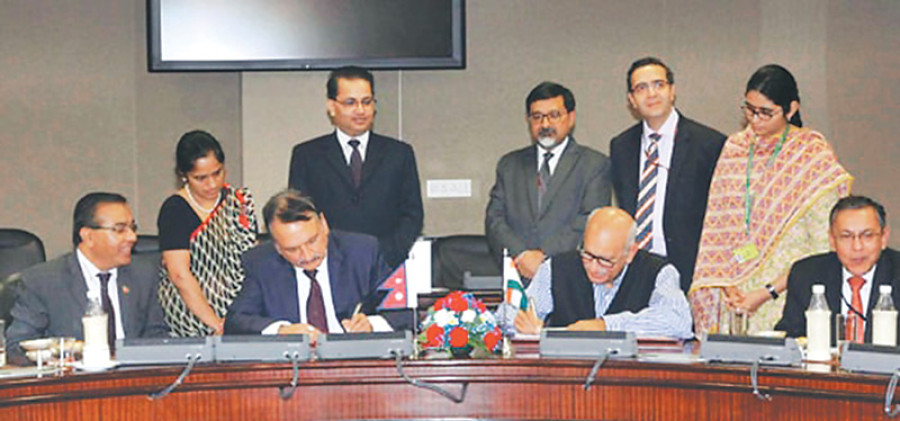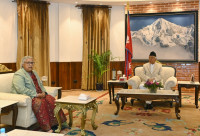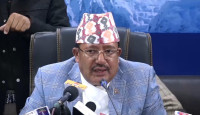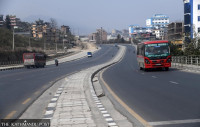National
Nepal, India agree to accelerate 7 projects
Nepal and India have agreed to expedite seven projects related to infrastructure, cross-border connectivity and utilisation of the Indian aid for Nepal’s reconstruction.
Nepal and India have agreed to expedite seven projects related to infrastructure, cross-border connectivity and utilisation of the Indian aid for Nepal’s reconstruction.
The agreement was reached during the fourth meeting of the Nepal-India Joint Commission attended in New Delhi on Thursday.
According to the Foreign Ministry, the meeting reviewed the Nepal-India relations under five broad clusters—political, security and boundary; economic cooperation and infrastructure; trade and transit; power and water resources; culture and education. In order to ensure the expeditious implementation of bilateral projects, the Joint Commission decided to convene within a month the first meeting of the joint oversight mechanism of the officials of both the governments, the ministry said in a statement.
Nepal and India recently agreed to set up the mechanism to clear the bottleneck in India-funded projects in Nepal. Foreign Secretary of Nepal and the Indian Ambassador to Nepal will lead the respective sides.
The two sides agreed to finalise detailed project reports of the roads, Mahakali Bridge and irrigation projects to be implemented through the $1 billion concessional loan provided by India in 2014.
Besides completion of the first phase of Hulaki roads in the Tarai, discussion was held for availing of a new concessional loan for the second phase of the roads.
Both the sides agreed to work towards early completion of the ongoing Biratnagar-Jogbani and Bardibas-Bijalpura-Jaynagar cross-border railway projects while initiating works for the three other agreed cross-border rail link projects—Nepalgunj-Nepalgunj Road, Kakarbhitta-New Jalpaiguri, and Bhairahawa-Nautanawa.
According to the statement, both the sides agreed to start work early to build the Hetauda Polytechnic with an Indian assistance. On bilateral trade, the Nepali side requested the southern neighbour to take concrete measures to enhance Nepal’s export to India by addressing the concerns related to additional duties and charges, quantitative restrictions and rules of origin.
On Nepal’s request for additional air entry routes, the Joint Commission directed the concerned civil aviation authorities to deal with the matter in the next meeting by the end of 2016.
Nepal is also said to have requested India to take supportive measures to promote its tourism industry by including Nepal in its concessional leave scheme and by granting multiple entry visas to India-bound third country tourists to enable them to visit Nepal.
In order to address the issue of inundation of border villages and towns in Nepal due to roads and infrastructure built in the Indian territory, both the sides agreed to undertake joint inspection of specific places.
Formed in 1987, the Joint Commission is a bilateral mechanism with the
mandate to review the entire spectrum of Nepal-India relations. The last meeting of the commission was held in Kathmandu in 2014.




 10.91°C Kathmandu
10.91°C Kathmandu














